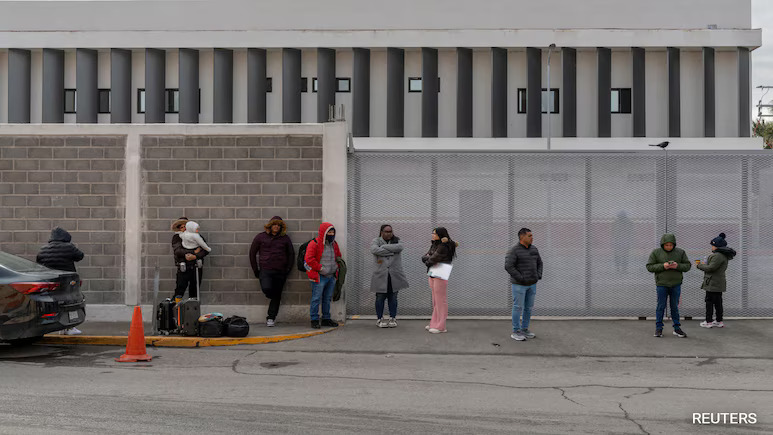Following Donald Trump’s recent immigration crackdown, many migrants are resorting to expensive smugglers and perilous routes to enter the United States. Alex Diaz, a 23-year-old Honduran migrant, is among those considering illegal entry after his U.S. asylum appointment was canceled. Diaz, once determined to avoid illegal crossing, now faces a $7,000 smuggling fee to reach San Antonio, Texas.
Trump’s termination of the CBP One program, which allowed migrants to schedule asylum appointments at legal border crossings, has left individuals like Diaz with limited options. The program’s closure is part of Trump’s broader effort to tighten border security, further complicating the journey for migrants stranded in Mexican border towns.
Interviews with migrants, smugglers, and law enforcement reveal that stricter policies have driven up smuggling costs. A Mexican smuggler disclosed that increased U.S. border restrictions have forced smugglers to charge more, with prices rising to as much as $6,900.
Law enforcement officials predict a rise in migrant deaths as cartels adopt more dangerous routes. Valeriano Perez, an investigator in Maverick County, Texas, anticipates an uptick in migrant fatalities as they navigate hazardous terrain to bypass checkpoints.
For migrants like Roberto, a shopkeeper from southern Mexico, the skyrocketing smuggling costs have become a significant barrier. Roberto, who had been waiting for a CBP One appointment in Tijuana, now faces fees nearly double the previous rate. Despite the risks, he plans to save money and attempt the crossing.
However, not all migrants are willing to take the chance. Some, deterred by rising costs and fears of deportation, are choosing to remain in Mexico.
Diaz, who was kidnapped and beaten by a gang in Mexico earlier this month, remains determined to reach the U.S. to support his two young children in Honduras. He is waiting for updates from friends who recently crossed the border illegally before making his decision.
“I want to cross, but I’m scared they’re going to catch me,” Diaz admitted, reflecting the desperation and uncertainty faced by many migrants under the new policies.

